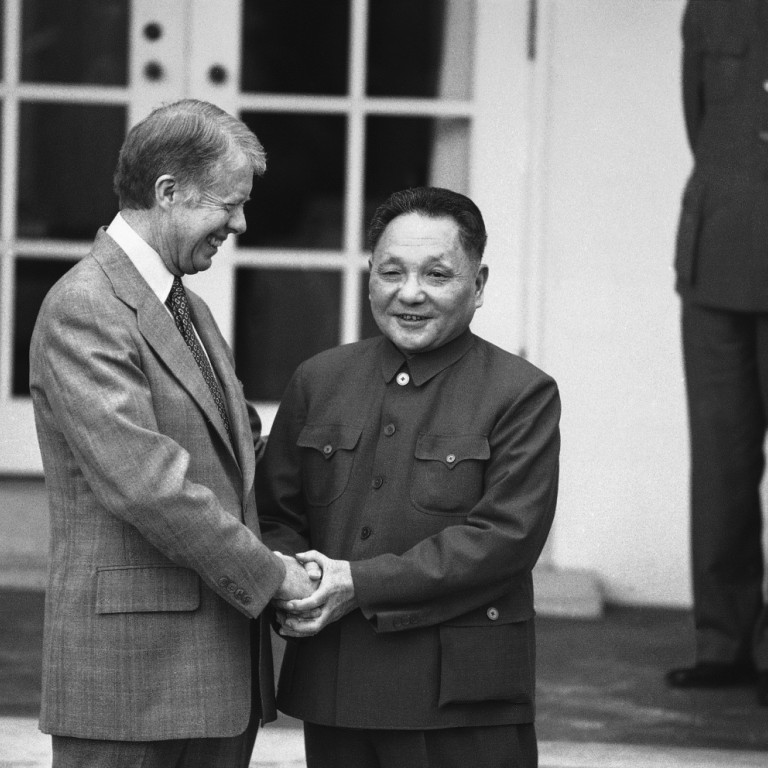
Normalisation of Sino-US ties was the right move, as today's China shows
Jerome A. Cohen says Cubans should realise the shift can help improve human rights over time
President Barack Obama's recent agreement to establish diplomatic relations with Cuba proved a double surprise. He gave little warning that, after so many false starts, this overdue, highly desirable achievement was about to occur and, within hours, this earthquake in international relations produced an unexpected aftershock. Many of Cuba's long-suffering human rights activists protested against the US decision to "normalise" relations without first extracting guarantees that the Castro dictatorship would empty its prisons of political dissidents and allow its people democratic freedoms.
Unless commitments are obtained, some activists hope to block the anticipated elimination of obstacles to American trade, investment, travel and cultural, educational and sports exchanges with Cuba. They fear the Castros have learned from China, as Vietnam did, that a clever Communist government can have it all - strengthening its hold on power through business and other forms of cooperation with the world's leading capitalist state without permitting political and civil rights.
These events make veteran China-watchers recall Washington's heated 1970s debate over China policy. President Richard Nixon's stunning 1972 visit to the People's Republic broke the logjam that had marked Sino-US relations for over two decades. Yet Nixon did not immediately establish formal diplomatic relations. He left the most difficult issues, including the relevance of Beijing's human rights abuses, to be resolved after his re-election. The Watergate scandal, however, disrupted Nixon's second term, and in its wake his successor, Gerald Ford, was too distracted to focus on China.
Thus, the challenge of Sino-US normalisation fell to Jimmy Carter, whose successful presidential campaign against Ford had emphasised the greater weight he planned to give human rights considerations in the formulation of foreign policy. Yet his most immediate China problem was the future of Taiwan. What would be the island's legal status? What would the US do about its defence treaty with the Chiang Kai-shek dictatorship? Mainland human rights took a back seat in negotiations.
Nevertheless, some opponents of normalisation argued that, before reaching agreement, Washington had to concern itself with mainland freedoms. Like today's Cuban rights activists and their American supporters, they maintained that the US should insist on explicit promises that Deng Xiaoping's government would adopt international human rights standards. Others went beyond that, advocating that the Carter administration should await tangible evidence to show that Beijing had actually abandoned harsh dictatorship and arbitrary practices.
Such arguments were not new in 1978. Similar ones had been made before President Franklin D. Roosevelt agreed to establish diplomatic relations with the Soviet Union in 1933, and they were heard again a decade after Sino-US normalisation when Washington and Hanoi finally buried the hatchet of the Vietnam war.
How should we view the opposition stance in light of the Chinese experience of the past 36 years? Were those of us wrong who, in 1978, predicted that normalisation would help promote human rights as well as other aspects of China's relations with the world? Certainly, at that time, we did not hear from China the kind of criticism of normalisation that we have just heard from Cuban activists. I lived in Beijing for the first 2½ years immediately following normalisation and was in frequent contact with activists, intellectuals, law reformers, scholars and progressive officials.
During the brief period when the Democracy Wall was allowed to flourish, I listened to many courageous speakers. Activists sometimes voiced their disappointment at the insufficiently vigorous protests by the US Embassy and State Department against their government's continuing human rights abuses, but I don't recall anyone questioning the desirability of normalisation.
The situation is not very different today. To be sure, despite China's enormous economic, social and educational progress - progress that normalisation spurred - civil liberties and political rights are severely suppressed. The Xi Jinping government has proved the most repressive the country has had in a generation and has eight more years to run. Yet, few of the many Chinese who are not free to comment would question the wisdom of Carter's decision.
Normalisation is only a first step, but a crucial one, in setting in motion complex forces that will increasingly improve the chances for eventually realising political and civil rights, as well as other human rights. Cubans should not condemn it, but make the most of it.

